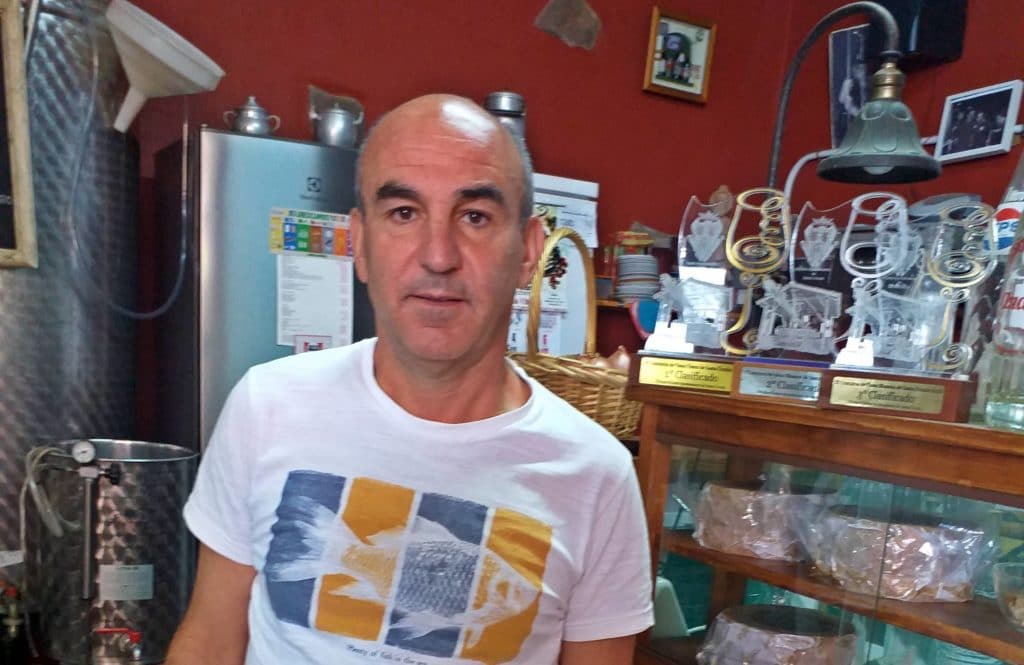
Diego Miguel Martín Marrero, better known as Chiqui, is one of the few people who maintains the traditional guachinche on the island of Tenerife. Specifically, in Tamaide (Santa Úrsula). A native of La Orotava, married to Alicia Lima Cruz and father of two children, he has run an authentic family guachinche for 20 years.
The idea of opening a guachinche, according to Chiqui, “it came about through two friends, but, above all, to be able to sell my own harvested wine”. After two decades in the business, he recognizes that the tradition is being distorted: “For a long time I have been observing that there are fewer and fewer traditional guachinches left. Above all, because there are many people who do not know what the true concept of a guachinche is.”
The wine it produces is from its own harvest. “It is a hard job, of many years, where we take care of the vineyard with care and love. Also, I have planted several new varieties, with the aim of making a good wine. In fact, we have won several prizes in the wine competitions that are held every year in Santa Úrsula. In 2016 I won the second for white wines and in 2018, the first for reds and third for white wines”.
With regard to the grape harvests that he achieves each year in the respective vintages at his estate in Tamaide (Santa Úrsula), the enthusiastic Diego Miguel Martín Marrero confessed that “it depends a lot on the weather each year, but normally I have been taking a few 2,000 liters of wine. Honestly, we can feel proud of the wines we achieve, especially because we have a loyal clientele who know the good quality of our wines. Both red and white.
What is a guachinche?
When asked what he understands by a guachinche, Chiqui does not hesitate to state that “it is what is traditionally known for the quality of its wines. In the past, the guachinche was prized and valued for its wines from its own harvests, accompanied by a festive meat, cheese, salted fish or an octopus grill, but always with the priority of tasting a good wine. Now it is the opposite, where many people go to the so-called modern guachinches to eat and drink water for the most part. I have nothing against restaurants, eating houses, bodegones and bars, but it seems unfair that they use the false advertising of the name of guachinches, especially when they do not produce wines of their own harvest.
Given this scenario, he calls for more vigilance from the authorities. “The Canary Islands Government should be more involved in this matter and put it in order, but above all because we are losing a traditional wine culture of what our true guachinches were. Without a doubt, times have changed, but I understand that we are losing a traditional wine culture of what our true guachinches were”.
Chiqui confesses that he is happy and motivated when he sees the happiness of his clients. “That is the best award they can give us. But also when we manage to offer an excellent wine from our own harvest. It is nice to receive customers from all over the Canary Islands in our business, who come to taste our wines, accompanied by some food, little, but homemade. Also, to take a few liters of wine to other islands”.
Open only four months a year. The rest, he dedicates to the care of the vineyard. “We want the best for our customers, but especially to continue preserving the true traditional guachinche,” he emphasizes.















